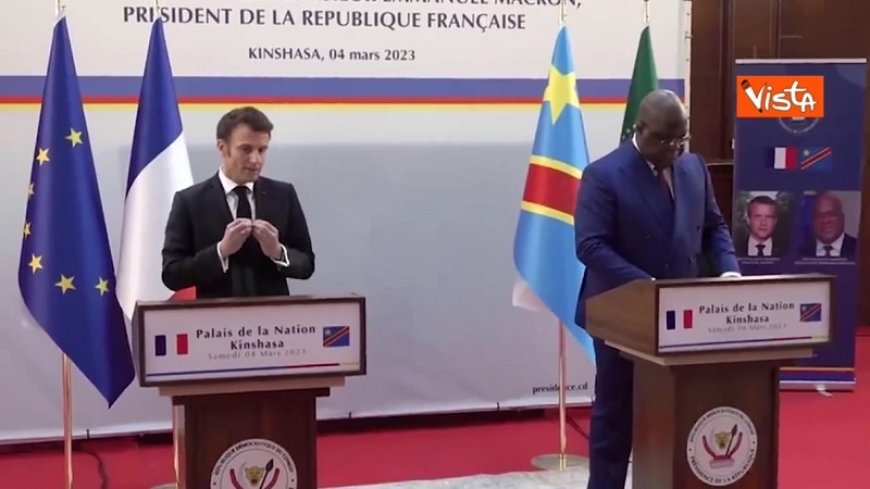French colonialism - the trip to Africa becomes a nightmare

"Start looking at us differently, without paternalism." These are the words of the President of the Democratic Republic of the Congo Félix Tshisekedi as he addressed his French counterpart Emmanuel Macron during a press conference held on March 4 in the capital of the African country Kinshasa. Harsh words that start from the question of Françafrique. The tenant of the Elysée assured that France "is committed to taking another step towards a new approach" towards the French-speaking states of the continent. “I pressed him on the subject because I am convinced that Françafrique is obsolete,” Tshisekedi said referring to Macron in the Palais de la Nation, where the Congo declared its independence from Belgium in 1960.
The tide has now also changed in Africa where Western countries are treated with growing hostility while other actors such as Russia find open doors, smiles and great availability. The president of the Democratic Republic of Congo (DRC), Felix Tshisekedi, rebuked on Saturday the his French counterpart, Emmanuel Macron, for Paris' position towards the African country and insisted on the need to be treated with respect and not with a "paternalistic" tone, according to local media."Look at us differently, respecting us, considering us as true partners and not always with a paternalistic eye, with the idea of always knowing what we need," Tshisekedi said during a joint press conference with Macron, who visited the country's capital, Kinshasa, as part of his tour on the continent from 2 to 5 March.
"If France wants to cooperate with all other partners in Africa today, it must be in tune with African policy and with the way African peoples look at cooperation partners today," Tshisekedi warned. In his remarks, which provoked a standing ovation among those present, the DRC leader referred to the words of former French Foreign Minister Jean-Yves Le Drian, who questioned Tshisekedi's rise to power in 2019 , saying the election results were "inconsistent". For his part, Macron has tried to tone down his counterpart's accusatory tone, attributing the recriminations to the press. "I want you to know that when there are electoral problems in the United States or in France, the press talks about it, denounces it [...]. It is the task of the independent press", said the French president. However, Tshisekedi immediately denied the answer, specifying that he was referring to Le Drian. Another key issue that has exacerbated tensions between France and the DRC is the uprising of the rebel group March 23 Movement (M23), which according to Kinshasa it is mainly led by Rwanda. Despite the launch of a peace process last November in Luanda, the capital of Angola, and the joining of regional efforts to end hostilities, no results have yet been recorded.
In this regard, the DRC, the last destination of the French leader's African tour, was expected to intervene, but Macron only urged the country to "assume its responsibilities", without implementing concrete measures or sanctions. The arrival of the French president in the capital of the Democratic Republic of Congo was preceded by a series of national protests. Even if not on a large scale, they could be seen as signs of growing anti-French sentiment in parts of French-speaking Africa, as reported by Reuters. A week before Macron set foot on the African country's soil, Congolese protesters filled one of the busiest streets in the city to distribute leaflets aimed at encouraging protest at his visit.
According to one of the activists, Paris is focusing its attention on Central Africa due to the breakdown of relations with the former West African colonies. About 100 protesters also gathered in front of the French embassy in Kinshasa and one of them wrote on the wall of the building: "Macron, leave" in large red letters. The politician has been accused of being the French president who "had the most contact with Rwanda." Macron, meanwhile, said on Thursday during his visit to Gabon that the era of the so-called Françafrique ('Françafrique', in French ), a term often used to describe Paris' strategy to defend its interests in the former colonies, is over.













































